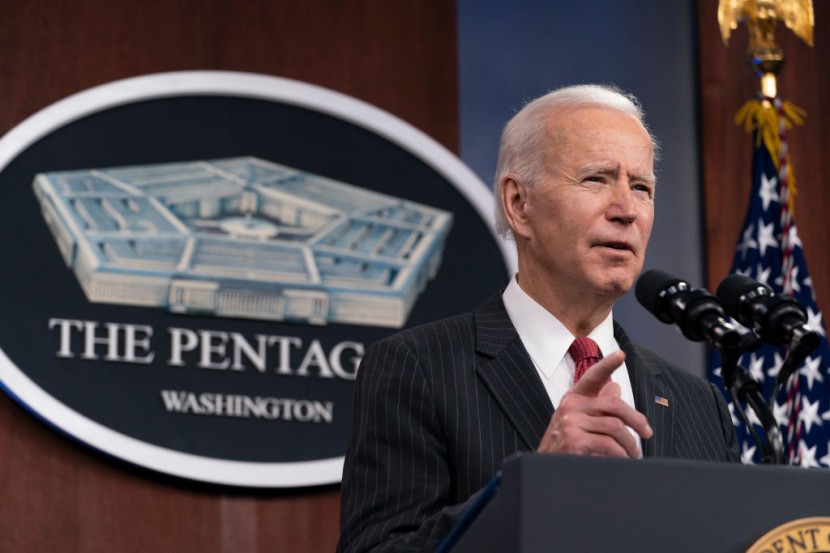
The US airstrikes in Syria, ordered by President Joe Biden, were in retaliation for the rocket attacks on United States targets in Iraq. Biden ordered the US airstrikes on Thursday on Syrian buildings that, according to the Pentagon, were used by Iranian-backed militias.
According to several experts and lawmakers, the US airstrikes are not merely Biden's initial military action. It is a test of his broad vow to pursue a foreign policy that is more cooperative and mindful of international partners than his predecessors. But it still renounced the US's role as the world's police to focus on providing a better life for Americans.
US Airstrikes: A Retaliation Against Syria
The US airstrikes dropped seven 500-pound Joint Direct Attack Munitions at a crossing used by Iranian-backed militia groups. Back in former President Trump's regime, he launched tit-for-tat airstrikes on Iranian-backed proxies, as did former President Barack Obama before him.
According to Pentagon officials on Friday, the retaliation was a message from the president that such attacks would not be left unpunished. The meaning Tehran took from the retaliation on its proxies is still unclear.
The US initiated what is being touted as "precision strikes" against Iranian-backed militia groups in Syria. According to Pentagon spokesperson John Kirby, "This strike was authorized in response to recent attacks against America and coalition personnel in Iraq and to ongoing threats to those personnel," reported 13 News Now.
Biden noted Iran should view his decision to enable US airstrikes in Syria as a warning that it could expect consequences for its support of militia groups that threaten the interests or personnel of the United States. According to Biden, "You can't act with impunity. Be careful." He said so when a reporter asked what message he had intended to convey with the airstrikes. The Pentagon remarked it destroyed several buildings in eastern Syria but were not intended to eradicate the militia groups that used them to initiate attacks within Iraq, reported AP.
Also Read : ISIS Leader Killed In U.S.-Led Airstrikes
In bombing the war-torn nation in the initial weeks of his presidency, the president followed in his predecessor's footsteps, who launched a missile strike 77 days into his tenure. The airstrikes hit a Syrian airbase in a counterattack for a suspected chemical weapons attack. The strikes both have in common in terms of being designated to be interpreted as a message and not as an act of war.
McConnell Voices Support for Biden's Order
Senate Minority Leader Mitch McConnell crossed the partisan line. He offered support for Biden's decision to launch airstrikes targeting Iran-backed militias in Syria. The Kentucky Republican said he supports Biden's decision to authorize strikes against facilities associated with Iranian-backed terrorist groups accountable for attacks against American interests in Iraq. "We will need more information to judge the efficacy of the strikes and the signal they send to Tehran and its proxies, but I believe the President acted well within the authorities of his office," reported Washington Examiner.
According to Pentagon press secretary John Kirby, the bombing in eastern Syria was carefully calibrated. He called it "defensive" and "proportionate." Kirby said the bombing resulted in casualties. However, he said it was too early to determine precisely the number of militia fighters who could have been killed or wounded.
The London-based Syrian Observatory for Human Rights on Friday reported that the strikes recorded 22 fatalities. They cited unconfirmed local reports.








